Related Research Articles
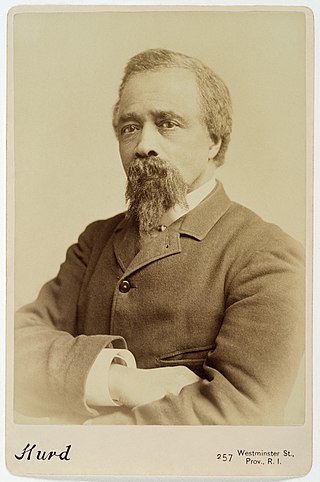
Edward Mitchell Bannister was a Canadian–American oil painter of the American Barbizon school. Born in colonial New Brunswick, he spent his adult life in New England in the United States. There, along with his wife Christiana Carteaux, he was a prominent member of African-American cultural and political communities, such as the Boston abolition movement. Bannister received national recognition after he won a first prize in painting at the 1876 Philadelphia Centennial Exhibition. He was also a founding member of the Providence Art Club and the Rhode Island School of Design.

North Smithfield is a town in Providence County, Rhode Island, United States, settled as a farming community in 1666 and incorporated into its present form in 1871. North Smithfield includes the historic villages of Forestdale, Primrose, Waterford, Branch Village, Union Village, Park Square, and Slatersville. The population was 12,588 at the 2020 census.
Prudence Island is the third-largest island in Narragansett Bay in the state of Rhode Island and part of the town of Portsmouth, Rhode Island, United States. It is located near the geographic center of the bay. It is defined by the United States Census Bureau as Block Group 3, Census Tract 401.03 of Newport County, Rhode Island. As of the 2010 census, the population was 278 people living on a land area of 14.43 km2 (5.57 sq mi).
John Collins, or Jon Collins, may refer to:

Jonathan Arnold was an American physician and statesman from New England. He was born in Gloucester, Rhode Island, served in the Continental Army as a surgeon, and directed the army hospital in Providence. He represented Rhode Island as a delegate to the Confederation Congress in 1782 and 1783. He moved to a farm in St. Johnsbury, Vermont in 1787, and later served as a judge.

Samuel Hopkins was an American Congregationalist theologian of the late colonial era of the United States. Hopkinsian theology was named for him. Hopkins was an early abolitionist, saying that it was in the interest and duty of the U.S. to set free all of their slaves.
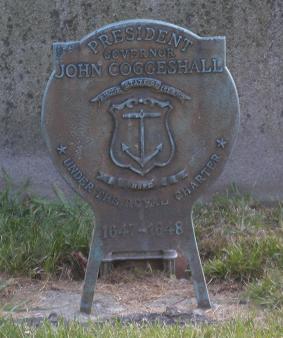
John Coggeshall Sr. was a British colonial statesman who was one of the founders of the Colony of Rhode Island and Providence Plantations and the first President of all four towns in the Colony. He was a successful silk merchant in Essex, England, but he emigrated to the Massachusetts Bay Colony in 1632 and quickly assumed a number of roles in the colonial government. In the mid-1630s, he became a supporter of dissident minister John Wheelwright and of Anne Hutchinson. Hutchinson was tried as a heretic in 1637, and Coggeshall was one of three deputies who voted for her acquittal. She was banished from the colony in 1638, and the three deputies who voted for her acquittal were also compelled to leave. Before leaving Boston, Coggeshall and many other Hutchinson supporters signed the Portsmouth Compact in March 1638 agreeing to form a government based on the individual consent of the inhabitants. They then established the settlement of Portsmouth on Aquidneck Island, one of the four towns comprising the Colony of Rhode Island and Providence Plantations.
Samuel or Sam Ward may refer to:

Moses Brown was an American abolitionist and industrialist from New England who funded the design and construction of some of the first factories for spinning machines during the American industrial revolution, including the Slater Mill which was the first modern factory in America.
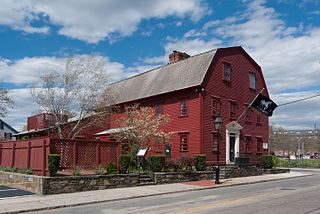
The history of Rhode Island is an overview of the Colony of Rhode Island and Providence Plantations and the state of Rhode Island from pre-colonial times to the present.

Jonathan Chace was a United States representative and Senator from Rhode Island.

Seth Padelford was the 31st Governor of Rhode Island from 1869 to 1873.
Dutee Jerauld Pearce was an American politician and a United States Representative from Rhode Island.

Elizabeth Buffum Chace was an American activist in the anti-slavery, women's rights, and prison reform movements of the mid-to-late 19th century.
Edward Hutchinson was a mercer and a resident of Lincolnshire, England, most noted for the careers of his children in New England. While his father and several of his uncles and brothers became prominent as clergymen, aldermen, sheriffs, and mayors in the city of Lincoln, Edward focused his efforts on his business after moving to the town of Alford. Remarkably, not a single record for him has been found in Alford, other than his burial and the baptisms of his 11 children, but he likely gained a considerable estate, and his children married into prominent families. What was most exceptional about Edward Hutchinson occurred following his 1632 death. Beginning in 1634, five of his nine surviving children and his widow immigrated to New England, and all six of them were exiled from the Massachusetts Bay Colony as a result of the events of the Antinomian Controversy from 1636 to 1638. From Boston two of his children went south and became founding settlers of the Colony of Rhode Island and Providence Plantations, and three of them, with his widow, went north to establish Exeter in the Province of New Hampshire, and then proceeded to Wells, Maine. Because of their involvement in the controversy, his children had a disproportionately large role in the establishment of these new settlements in New England.

The Providence Island colony was established in 1630 by English Puritans on Providence Island, about 200 kilometres (120 mi) east of the coast of Nicaragua. It was founded and controlled by a group of English investors, the Providence Island Company.
Samuel A. Azzinaro is an American politician and a Democratic member of the Rhode Island House of Representatives representing District 37 since January 2009. A veteran who served in the United States National Guard and Army Reserves, Azzinaro is currently the Chairman of the House Committee on Veterans' Affairs.
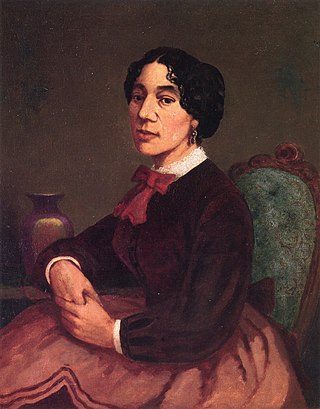
Christiana Carteaux Bannister was an American business entrepreneur, hairdresser, and abolitionist in New England. She was known professionally as Madame Carteaux. Christiana was married to successful artist Edward Mitchell Bannister, who she supported financially during the early stages of his career. While Christiana's legacy has been overlooked in the past, coverage of her work in popular sources during the late 2010s has brought new attention to her success and political efforts.
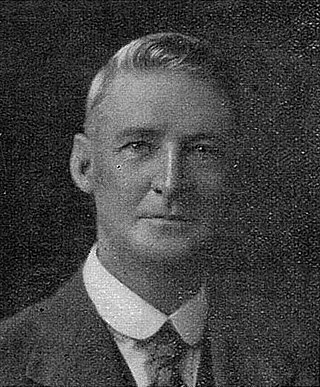
Edward Percival Rishworth was a New Zealand politician who was Mayor of Lower Hutt from 1918 to 1921.
Rishworth is a village in Calderdale, West Yorkshire, England.
References
- ↑ Dixon, Guy (2012). "Samuel Rishworth of Providence Island, Councillor (1632-1638) and Abolitionist". Genealogists' Magazine. 30 (11).